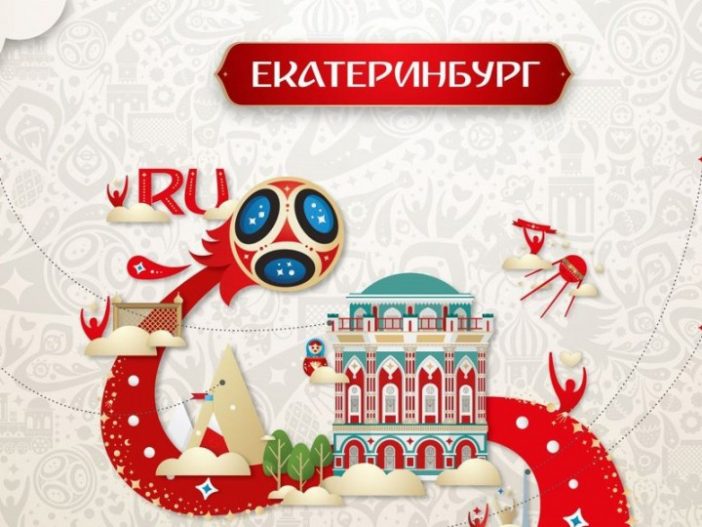In the current conditions of the development of the world economy, which are characterized by a certain stagnation in economic activity and a decline in the growth rates of the leading countries, the stimulation of the economic activity of business and households in countries through world-class events acquires particular popularity. Significant information support of such an event, increase of tourist flows to the country of the organizer lead to certain economic effects.
Football world championships have never been held in Eastern Europe. And, of course, for the first time Russia became the hostess of the world football World Cup. Holding the 2018 FIFA World Cup in Yekaterinburg is the most grandiose event for the city and the region. Despite its sporting status, the World Cup is also a geopolitical, economic, humanitarian and cultural project.
In political terms – this is a chance on behalf of the city to show the whole of Russia as a whole. Tell the world about yourself, demonstrate your compliance with world standards. Therefore, this project is considered national and national. In cultural and humanitarian terms, it is an opportunity to open ourselves to other countries, to demonstrate our culture, traditions, cuisine, attractive tourist sites and the like. The implementation of national projects is a mechanism for implementing state regional policy in the regions.
From an economic point of view, it is the construction of new sports facilities, the development of transport infrastructure, hotel facilities, services, tourism, and the improvement of the situation in virtually all areas of our economy. The regional aspect is a high result, economic and social achievements that the region will receive from the implementation of the national project.
Sport, as a special kind of business and social and economic activity of people, is now gaining worldwide significance. In the modern information society, countries compete with each other in the sphere of sporting achievements, as it happens in matters of economic or political possibilities. And world consumers are ready to pay for it. The multi-billion-dollar football business relies on a high spectator interest and an organized territorial club loyalty program for fans.
So what is the economic effect of the 2018 World Cup in the capital of the Urals?
First, I want to define this global event as an instrument necessary to ensure positive social changes and the development of the city. The most pleasant expectation is connected with the development of infrastructure and the growth of investments in the most diverse spheres of the economy. Serious funds – both regional and federal – are invested in the construction of social and sports facilities. It is impossible not to single out the fact that at this stage the facades of houses, parks and squares, hotels, hundreds of kilometers of roadway have changed. The city will receive new engineering systems and communications. Issues of resettlement from dilapidated and dilapidated housing, reconstruction of cultural and historical monuments will be addressed.
Secondly, during the World Cup, the city that hosts the games attracts the attention of the entire planet. The region is becoming more recognizable. For example, during the World Cup 2010 in South Africa, the audience of each match was 125 million people, and the finale looked at about 700 million. Access to the global audience can give a radically new impetus to the city’s development, new projects and partnerships. It is important not to miss this rare chance and to prepare a qualitative platform for the promotion of our region: to develop a quality brand, a strategy for promoting the region and to adhere to it clearly.
It is impossible to talk about a uniform economic effect for all cities of the football championship, this effect will be unequivocally very different. For cities such as Yekaterinburg, which is not yet sufficiently advanced in terms of tourism, which does not have strong alternative opportunities to attract tourist traffic, the potential is much higher. Undoubtedly, it opens the possibility to obtain federal resources, which are not enough for all territories. But for this, mutual obligations are required, which are assumed by both the federation and the region.
In preparation for the event, the region must prove that these resources will be used as efficiently as possible.
The effectiveness of using funds to prepare for the World Cup can indirectly manifest itself in a wide variety of areas. In addition to the growth in the number of people who take a great interest in sports and healthy lifestyles, increase in tourist flow, development of services, this can affect, for example, the decrease in the number of road accidents (due to the expansion of roads and construction of interchanges), the growth in the number of foreign and foreign applicants entering the leading universities of Yekaterinburg because of the fact that the city is on hearing.
Large sports events are a great incentive for the development of the volunteer movement – both at the federal level and at the corporate level. Soft skills, ie volunteers, participating in the event, communicating with foreign guests, will receive knowledge that they could not get without the World Cup.
Here we observe, on the one hand, an increase in social activity, and among citizens of all ages. On the other hand, volunteer initiatives within companies become a very effective tool in terms of building a policy of intra-corporate communications. Such a tool can increase the loyalty of employees to their company.
But that is not all. The heritage is, first of all, changes. A safe and friendly living environment, a clean city, new opportunities, greater freedom of choice. As a consequence, a healthy, athletic and modern population. But most importantly, the World Cup 2018 is an unforgettable experience of participating in the largest world event and the pride of the residents for their city, the city of Yekaterinburg.
Lyzhin Mikhail Andreevich




 09.03.2018
09.03.2018






